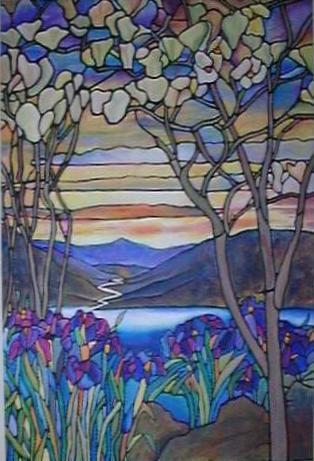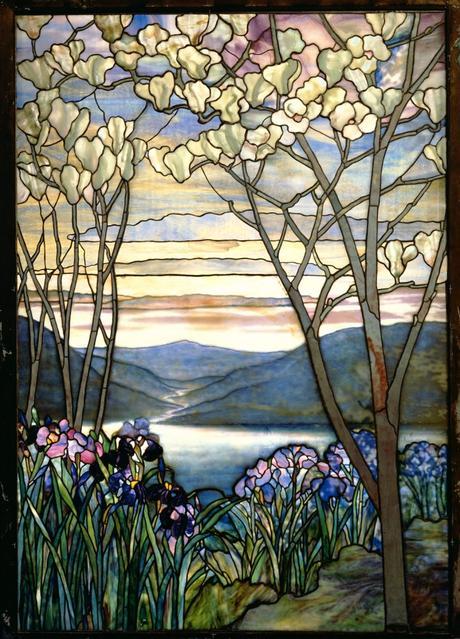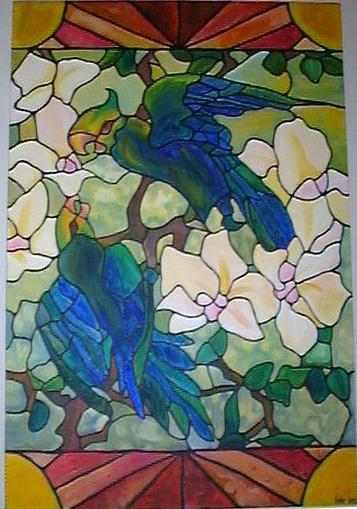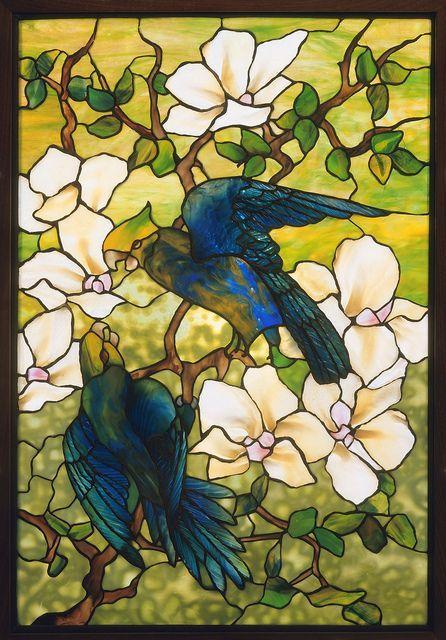I painted these two paintings in 2001. Today, I believe they hang in my parents’ home–as do many of my paintings from this time period.
I’ve always been inspired by flowers as a painting subject and obviously I still am. I am an avid gardener and observer of plant life…I’m not so hot at memorizing plant names, although I’ve probably picked up more of this side than I realize, just by loving to look at plants and grow them.
This one is called “Purple Coneflower” (the plant also know as Echinacea.)
Purple Coneflower. 24″ x 30″, Acrylic on Canvas, © 2001 Cedar Lee
This one is “Daisies.”
Daisies. 24″ x 36″, Acrylic on Canvas, © 2001 Cedar Lee
These paintings share a similar style: very bold colors, the flowers made up of flat shapes outlined in black, and the backgrounds made up of soft, fuzzy abstract shapes formed with big dots of the paintbrush, like a sloppy kind of pointillism.
To me, this brings to mind a photograph in which the flowers are in sharp focus, with the background out of focus to the point of being just a blur. Although my style has evolved over the years, you can still see hints of these aesthetic choices and motifs in my current Lotus paintings.
How did I arrive at this fun style? Well, in the year before I painted these, as part of my trial-and-error process of teaching myself painting, I created two amateur copies of the famous Tiffany stained glass windows, “Magnolia and Irises” and “Parrots and Blossoms.”
I only have these terrible photos of those, and when I say “terrible”–honestly, it looks like these photos were taken with a potato. Incredible how much digital photography has improved in less than two decades!
Magnolia and Irises:

Early work by Cedar Lee: Copy of Tiffany stained glass window
Copied from this original:

Magnolia and Irises by Louis Comfort Tiffany
Parrots and Blossoms:

Early work by Cedar Lee: Copy of Tiffany stained glass window
Copied from this original:

Parrots and Blossoms by Louis Comfort Tiffany
I was already fascinated with painting shapes with sharp black outlines like a stained glass window, as you may remember from “Opposites Attract.” So, copying some gloriously beautiful real stained glass pieces seemed a natural evolution. You can see I made some changes and added my own twist to them, but even so, I didn’t sell these pieces or try to claim them as my own–they were just a student’s copies, done for my own self-education. I gave both of them to my parents as well–(lucky parents.)
Anyway, I’m so thankful I went off on that little stained-glass tangent so many years ago. This kind of aesthetic that combines line, shape, and color so boldly continues to influence my artistic decision in subtle ways to this day.
